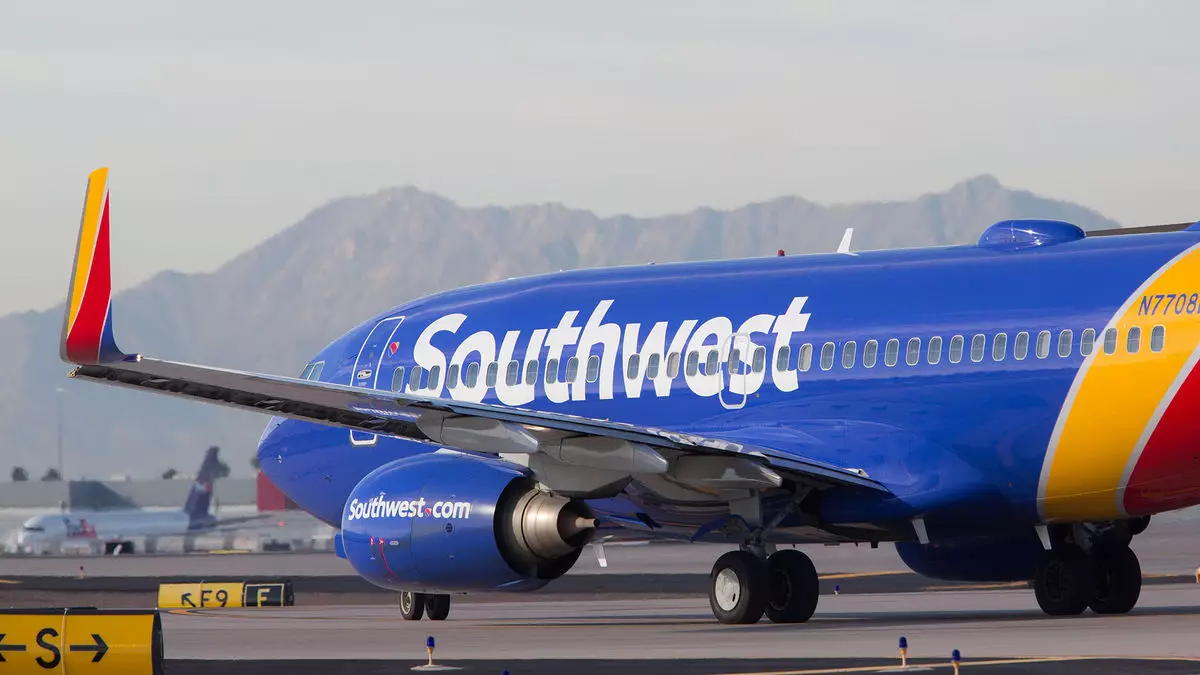Southwest Airlines is poised for a transformative year in 2024 as it embarks on its inaugural partnerships with other airlines, a significant shift from its historically independent operational model. The carrier’s decision to collaborate with Icelandair marks a pivotal moment, bringing Southwest into a more interconnected realm of air travel that many of its competitors have embraced for years. This new partnership will allow Southwest customers departing from Baltimore to connect to Icelandair’s extensive European network, effectively broadening their horizons and enhancing their travel options.
The announcement was strategically timed just ahead of an Investor Day event at Southwest’s Dallas headquarters, where company executives face mounting pressure from shareholders, particularly Elliott Investment Management, which holds an 11% stake in the airline. Elliott’s plan to instigate a proxy vote reflects investor concerns regarding Southwest’s recent performance and strategic direction.
Another major development slated for 2024 is the introduction of assigned seating, a policy change that will replace Southwest’s longstanding open-seating approach. Known for its unique boarding system, the airline will adopt a new method where premium customers and those with extra-legroom seats will board first, optimizing the process while still retaining an element of structure with position numbers. This new system aims to enhance the travel experience by lowering boarding times and improving crowd management at the gates.
The introduction of extra-legroom seats is expected to appeal to travelers seeking comfort during their flights. These premium seats will provide up to five additional inches of space, catering to a growing demand for more legroom in economy-class settings. The initiative signifies Southwest’s commitment to improving passenger comfort without compromising the existing standard economy seat pitch, which remains competitive within the industry.
Southwest’s recent announcements are not simply tactical shifts; they are part of a broader strategy aiming for significant financial growth. The airline anticipates that these initiatives—including the new partnerships and revised seating plans—will generate approximately $4 billion in additional earnings before interest and taxes by 2027. Such targets underscore Southwest’s ambition to enhance profitability while still maintaining key selling points, such as its policy of allowing customers to check two bags for free, which continues to distinguish it in the competitive airline landscape.
As the airline navigates this exciting yet challenging transition, it faces several uncertainties. Stakeholder expectations, the implications of expanded partnerships, and the complexities of adjusting to new seating policies all pose potential risks. Nonetheless, if managed effectively, Southwest Airlines could reposition itself as a more formidable player in the crowded skies, balancing its history of service with the contemporary demands of today’s travelers.
Ultimately, Southwest Airlines is on the brink of a new chapter, one that could redefine its market position. The anticipation surrounding its partnership with Icelandair and upcoming seating changes reflects a broader willingness to adapt to industry trends. As the airline prepares for these changes, stakeholders and customers alike should keep a close watch on how this endeavor unfolds, as it has the potential to reshape the air travel experience for millions.

